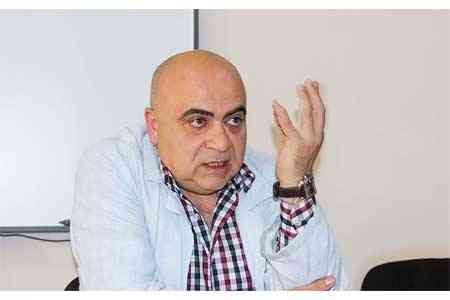


ArmInfo. The situation in the public multiplex in Armenia is very bad, caused by the large debts that the country's television companies have accumulated. Chairman of Armenia's National Commission on TV and Radio (NCTR) Tigran Hakobyan stated at a press conference on January 30.
According to him, among those who have accumulated debts are the following TV channels: "Armenia", "Svobodnye Novosti", "Dar 21" and A-TV. According to him, a debt repayment schedule has been proposed for some debtors, and the repayment process has already begun, leaving only one television company - Free News with very large debts - against which the Ministry of Technology intends to resort to tough measures.
However, as Hakobyan emphasized, it is very difficult to blame the television companies for this, since the same "Armenia" TV channel, which has always received serious profit from advertising and other sources, is now operating at a loss. The head of the commission noted that a similar situation had developed in other television companies as well. The reason for this was that currently there are no longer monopolies in the market, and advertisers prefer other platforms, including social networks. "According to our calculations, viewing of TV programs decreases by 3-5% annually. But taking into account the fact that the public multiplex serves the public interest, which is associated with state interests, information wars, etc., a search is underway for mechanisms to solve problems with unprofitability TV companies so that they operate normally and profitably," said the head of the commission.
He noted that just a few years ago, the right to place advertising was returned to the Public Television of Armenia, which was opposed by the Commission, which believed that PTA funding should come from the state budget. But since the right to place advertising was returned to the TV channel, the PTA received 700 million drams in advertising fees in 2023 alone. Meanwhile, the field is expanding, the number of TV channels is growing, and accessibility to advertising is decreasing.
Hakobyan also pointed to the law adopted 1.5 years ago banning advertising of winning games, which led to the loss of about 800 million drams by television and radio companies. "These bans have led to the fact that both television and radio companies have suffered significant losses. To support them, we propose to establish funds with the participation of both public and private capital and international partners, with the participation of which it would be possible to finance, for example, children's, educational and cultural programs," said Hakobyan, pointing, for example, to 200-episode cartoons that help improve the level of education among children. If the necessary funds are available, these series could be translated into Armenian with high quality and offered to television companies. "It is also necessary to keep in mind the transformation of China into a hegemonic country, and learning the language of this state can also have a positive impact on teaching Chinese through educational programs," the head of the Television and Radio Commission emphasized.